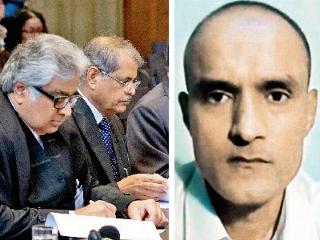The Hague, May 18: The International Court of Justice on Thursday asked Pakistan to suspend the death sentence of Indian national Kulbhushan Jadhav.
 The order was announced by ICJ president Ronny Abraham in a public sitting, 10 days after India approached the UN's top court for "provisional measure" of protection -- an interim relief -- in the Jadhav case.
The order was announced by ICJ president Ronny Abraham in a public sitting, 10 days after India approached the UN's top court for "provisional measure" of protection -- an interim relief -- in the Jadhav case.
The circumstances of Kulbhushan Jadhav's arrest remains disputed, said the ICJ judge.
He added that India should have been granted consular access as per Vienna convention.
In a public hearing on Monday, India accused Pakistan of violating the Vienna Convention by denying consular access to Jadhav and pronouncing him guilty of espionage in a "farcical trial".
The Indian legal team represented by Deepak Mittal, who heads the Pakistan division of External Affairs Ministry, demanded immediate annulment of Jadhav's death sentence amid fears that he may be executed even before the world court pronounced its decision.
Pakistan had, however, rejected the Indian argument on the ground that New Delhi had no right to invoke the jurisdiction of the ICJ and that the Vienna Convention does not provide for matters relating to spies, terrorists and those who indulge in espionage.
Jadhav was awarded the death sentence by a Pakistan military court in April, a year after he was arrested on espionage charges.
Islamabad has rejected 16 Indian requests for consular access to the former Indian Navy officer, held at an unknown prison in Pakistan.




Comments
Add new comment